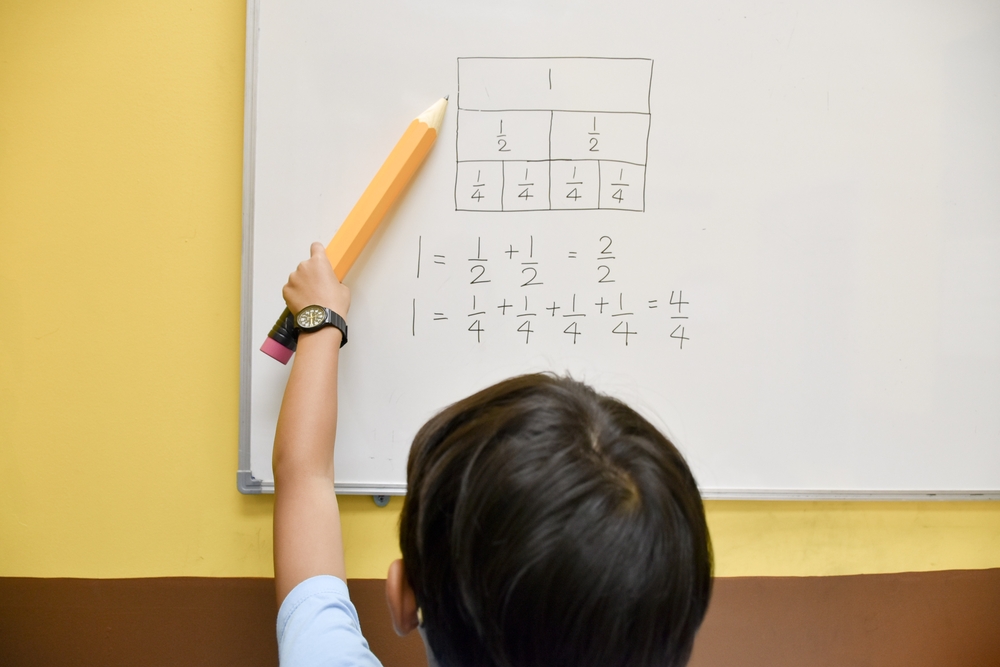Addition skills Easy Worksheets for 5-Year-Olds
6 filtered results
-
From - To
Introduce your 5-year-old to the excitement of math with our engaging addition skills easy worksheets! Designed specifically for young learners, these printable sheets make mastering basic addition fun and accessible. Through colorful visuals and hands-on activities, children develop confidence and foundational math skills. Perfect for classroom use or at-home practice, each worksheet is created to capture kids' interest and promote independent learning. Start building your child's math abilities today with our user-friendly addition worksheets. Explore and download now to unlock a world of learning!
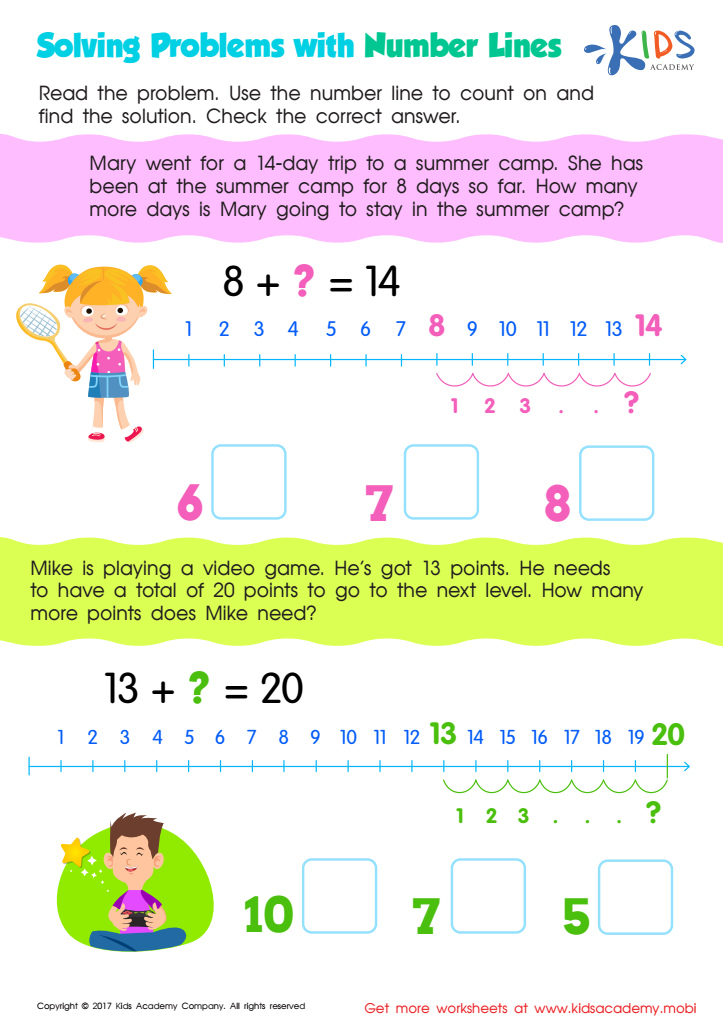

Solving Problems: Number Lines Worksheet
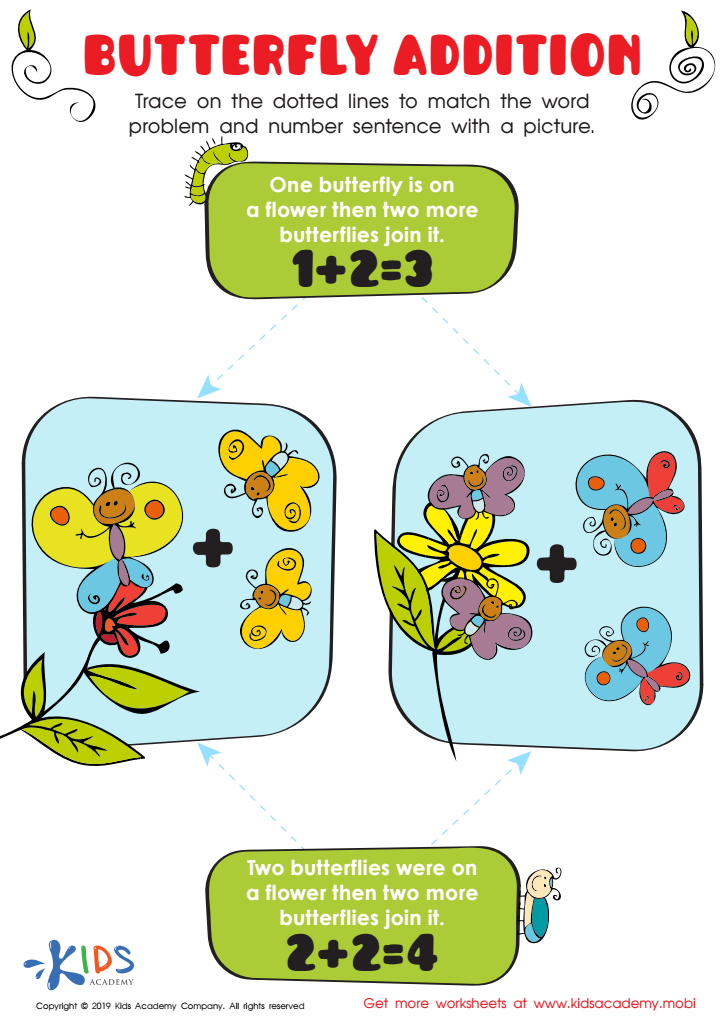

Butterfly Addition Worksheet
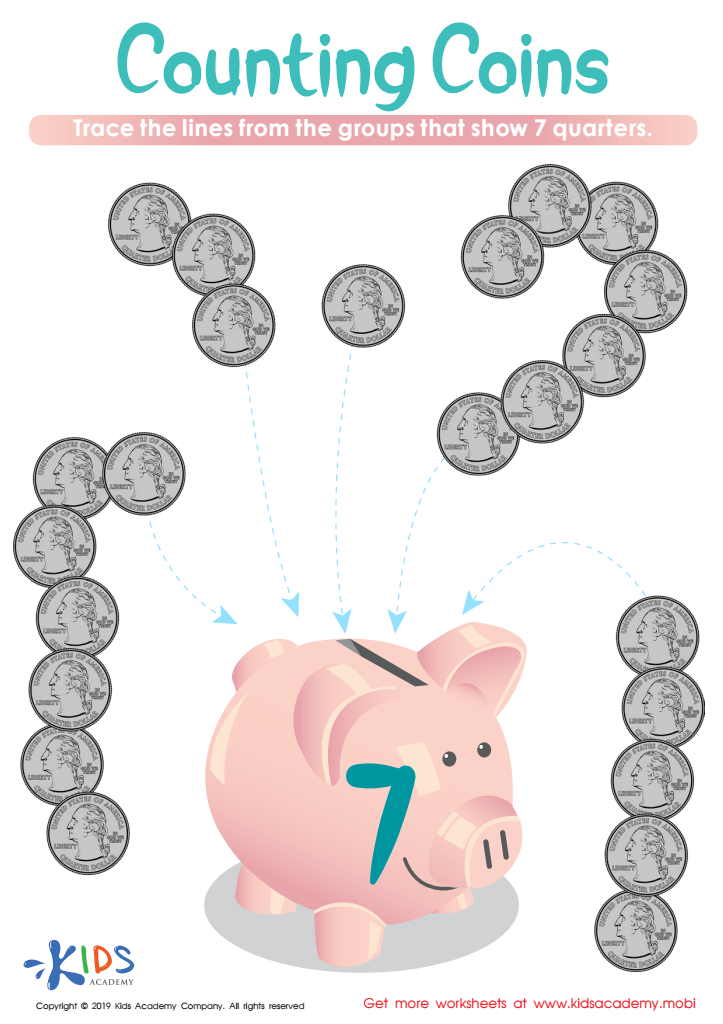

Counting Coins Worksheet
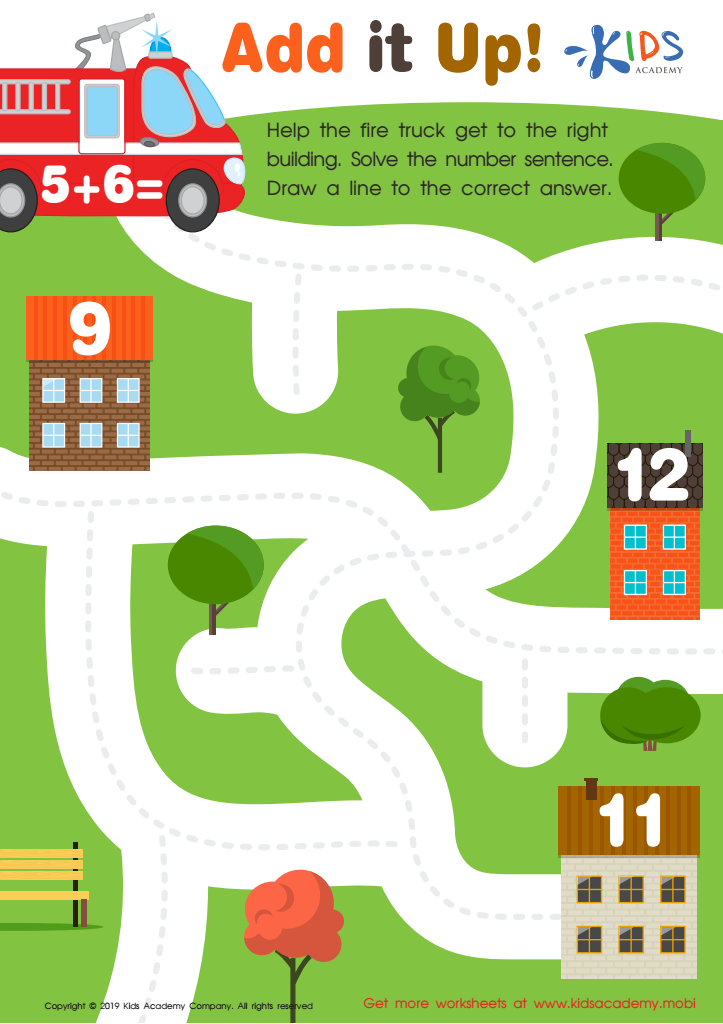

Add it Up Worksheet
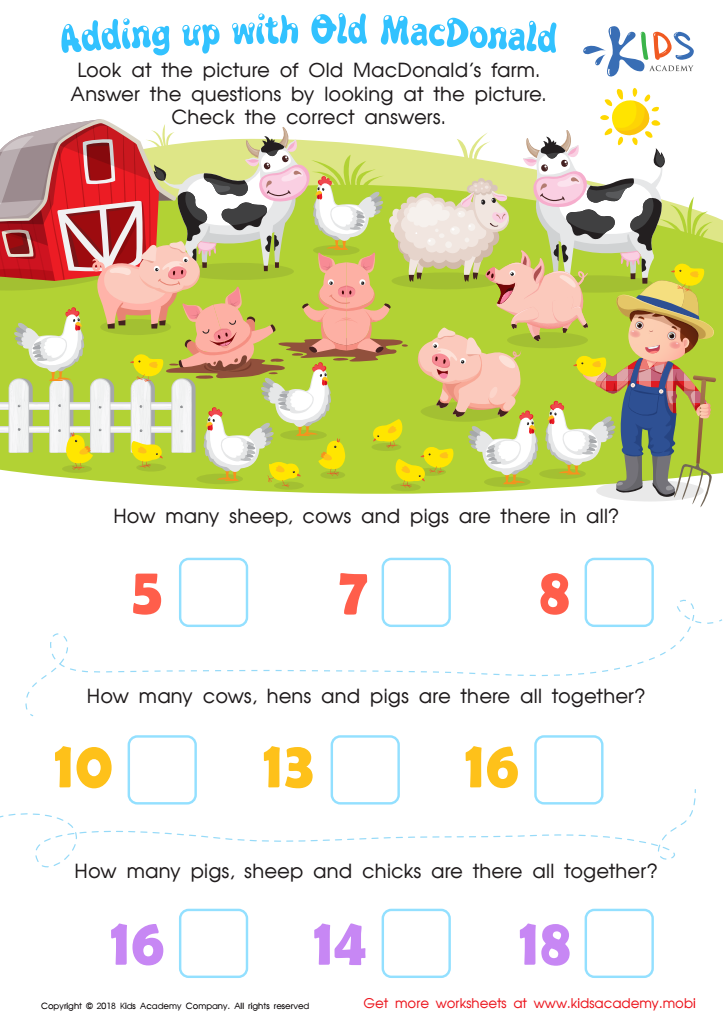

Adding Up with Old MacDonald Worksheet
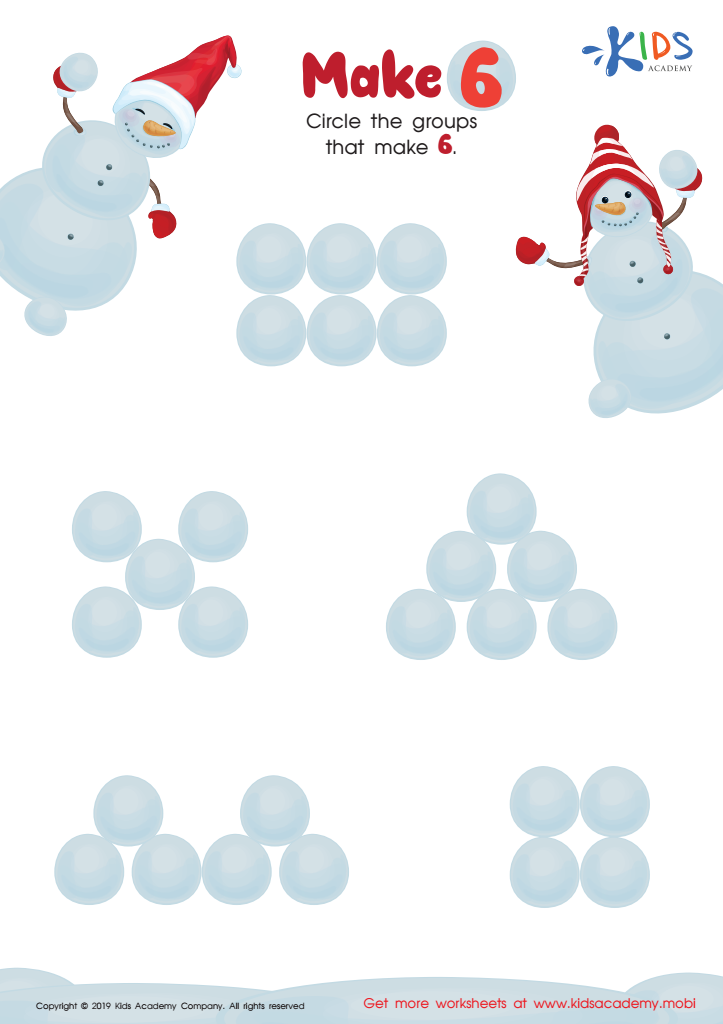

Make 6 Worksheet
Parents and teachers should care about fostering early addition skills in 5-year-olds for several crucial reasons. Firstly, early math skills lay the foundation for future academic success. Understanding addition helps children develop their number sense, which is essential for grasping more complex mathematical concepts as they grow older. When children are comfortable with basic addition, they can transition more smoothly into subtraction, multiplication, and division.
Additionally, practicing addition encourages cognitive development. It enhances critical thinking, problem-solving abilities, and logical reasoning skills. Young children learn to recognize patterns, make connections, and develop strategic thinking habits. These cognitive benefits extend beyond math, positively impacting other areas of their learning.
Furthermore, developing addition skills boosts children’s confidence and fosters a positive attitude toward learning. Achieving small successes in math can make children feel competent and motivated. This sense of accomplishment can encourage a lifelong love of learning, resilience in face of challenges, and a growth mindset.
Integrating addition into daily activities can be fun and engaging. Counting toys, adding snacks, or using story problems make learning interactive and relatable. It solidifies the concept that math is a part of everyday life, promoting continuous learning beyond the classroom, thus creating a balanced and holistic educational experience.
 Assign to My Students
Assign to My Students







